Comrades, Almost a Love Story, 25 years on: director Peter Chan on casting superstars Leon Lai and Maggie Cheung and its reflection of the tough lives of migrants in 1980s Hong Kong
- Director Peter Chan was ‘very convinced’ about casting pop idol Leon Lai, less so about actress Maggie Cheung, he said in a previously unpublished interview
- Chan also talks about why the film isn’t a love story. Rather, it’s about life in ’80s Hong Kong for migrants from China like the lead characters, and singer Teresa Teng

Comrades, Almost a Love Story, a bittersweet romance starring Maggie Cheung Man-yuk, Leon Lai Ming and Eric Tsang Chi-wai, opened in Hong Kong cinemas 25 years ago. The film went on to win in nine categories at the 1997 Hong Kong Film Awards and became an undisputed local classic.
Several months after its domestic release on November 2, 1996, the Peter Chan Ho-sun-directed film received a limited release in cinemas in the United States. After a special screening of his film in February 1998, Chan met this writer in New York for the following, previously unpublished interview, in which he talked about casting the film, dealing with the 1997 return of Chinese sovereignty over Hong Kong, and the lasting influence of singer Teresa Teng Lai-kwan.
How would you describe the plot?
It’s a film that traces the lives of two mainland Chinese immigrants in Hong Kong and eventually New York. It’s basically about two very lonely people being taken away from their roots. It’s not really a love story because it is not love at first sight. I don’t think they know they love each other. It’s more about sharing an experience together, which leads to a relationship.
You portray immigrant life in Hong Kong as very difficult.
It was very difficult in the early ’80s, it’s not as difficult now. As a filmmaker, I was trying to chronicle the last 10 years of Hong Kong as a colony of Great Britain. I believe that transition started when [then-British prime minister] Margaret Thatcher signed the Sino-British Joint Declaration in 1984, ironically the year I went back to Hong Kong to live.
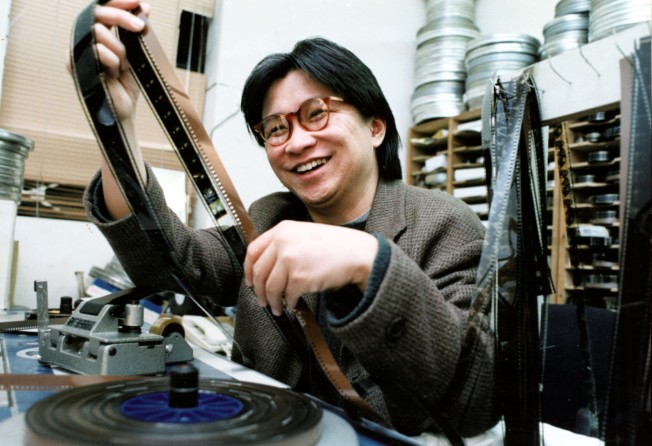
In Hong Kong movies of the late ’70s, mainland Chinese were depicted in comedies as hicks and hillbillies. In action films they were gangsters, soldiers of fortune who came to rob banks and stuff like that. Now we have bankers and entrepreneurs from China. I jokingly refer to Hong Kong switching from a British colony to a Chinese one.
One reason I cast Leon Lai to play the leading role is because he’s from China. He became a phenomenon in Hong Kong, the first big pop idol who could admit he’s from China.
How did audiences in Hong Kong respond to Leon Lai and Maggie Cheung together?
They are both big, phenomenal names in Hong Kong. Leon was basically a teen pop idol, he has never really been in a serious dramatic role. Maggie, on the other hand, has established herself as a character actress in the last five to eight years.
The media had this big question mark, just pointing at me all the time saying: “How can you put these two together? They are not right for each other.” But I knew what I could get out of Leon. I was very convinced.
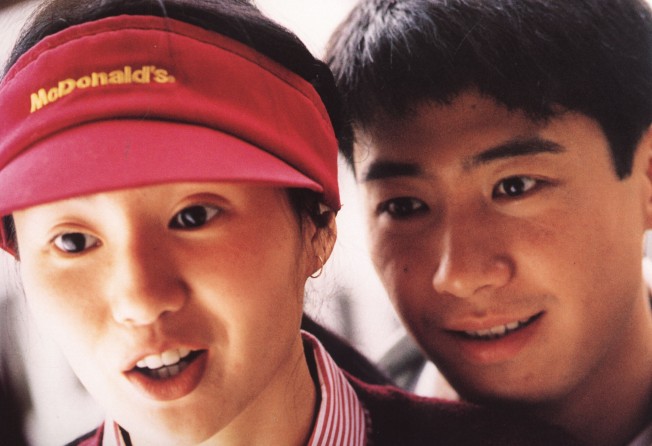
The funny thing is, I wasn’t convinced about Maggie. I totally trust her, she’s probably the best there is in Hong Kong, [but] I originally wanted to cast the actress and singer Faye Wong to play the lead. She’s another performer who is actually from China and is now a huge pop idol in Hong Kong. But she turned down the role.
I had nobody else to turn to except Maggie – even though she was a true city girl, born and raised in London and Hong Kong. But if you have to cast somebody in that role who’s not really from China, you better go to the best actress there is. And I think Maggie is the best.
She’s been in over 70 movies by now, but I’ve never seen her perform with such power and emotion.
She did that without my help; I have to give all the credit to her. When I worked with her before in my first film, she was not as relaxed as she is now. She is very serious in her craft, almost too serious.
When she looked at the script, she thought, “This is not an ambitious movie,” which is exactly what I wanted. The last thing you need is for an actress to go off for six months to learn the character. Maggie didn’t need that.
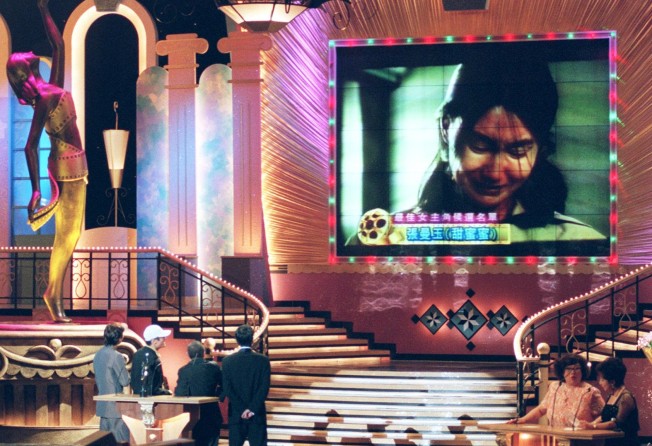
I did want her to learn the script, learn the character. We brainstormed for like a week. We had a lot of fun, basically just gossiping and chit-chatting about life and everything. And then she went off, learned her lines, and came back totally relaxed.
She’s at a point in her career where she’s totally confident. She thought the movie was a cute love story, and I think she actually did a better job with that attitude. In between takes on the set, she’s making fun of everybody, playing jokes, playing computer games.
Your technique in the film is so immersive, long takes in real locations, like a shot in a jewellery store that spills out into the street.
This was probably the easiest film for me to make, and I hate to make it sound arrogant because it is not. I just was not nervous about how the audience would react to the story.
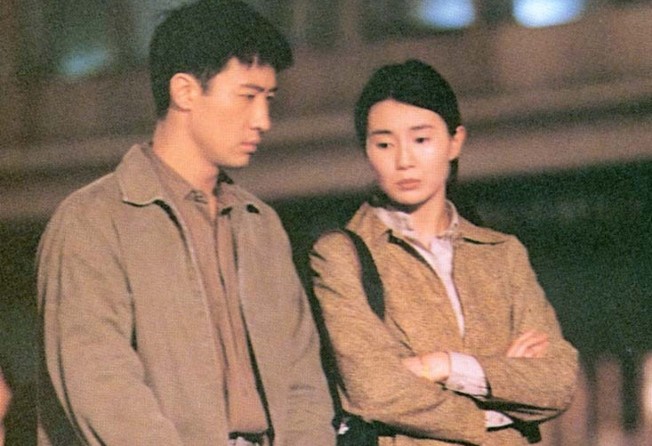
I was very uptight and nervous during He’s a Woman, She’s a Man (1994) because I’m trying to make a slapstick comedy that makes sense and is grounded in reality. You never know where the line is. A lot of times you have to guess. And even when it’s out in the theatre, you still don’t know. The audience might laugh, and then walk out of the theatre saying, “It’s so stupid.” It’s hard to make a comedy that makes sense.
You don’t have to worry about all that with Comrades, it’s not a comedy. It’s a straight story, an emotional piece. And all you need to do is to look back at your life and your experiences and the people you have talked to. It’s something that you already know, and there’s only one way to do it. What I’m trying to say is that it’s easier to make a personal film. It really is. I had no pressure in terms of how the audience will react.
The only reason that I got to make Comrades is because I agreed to do a sequel to He’s a Woman, She’s a Man. We had to push that out for summer. It’s one of those schedules where you have just a month-and-a-half to shoot. There’s nothing you can do with those star vehicles.
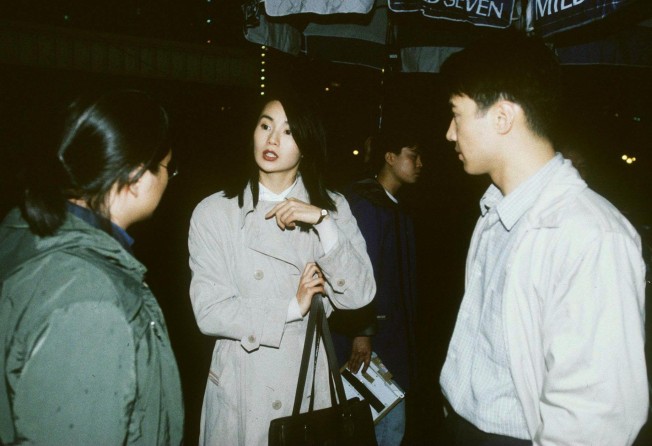
I told the studio I wouldn’t do the sequel unless you give me the money to do a small movie on the side. And that’s Comrades. It was done back-to-back with Who’s the Man, Who’s the Woman (1996). The funny thing is they never thought Comrades would do anything, but in terms of investment it did much better than the sequel.
Teresa Teng’s music plays a crucial role in Comrades. Do you think Americans will understand her significance?
If you made Comrades in America, it would probably take place in the 1970s, and the end of the movie would be the death of [Beatles member] John Lennon. That’s how important Teresa Teng was.
She was a Taiwanese singer who became big in Hong Kong and then Japan and eventually became a phenomenon in mainland China at the early stage of economic reform back in the late 1970s. So she was the first Chinese star who could sing in [mainland] China, Taiwan and Hong Kong. Ironically, that is very much what Comrades is about, about Chinese moving from place to place.
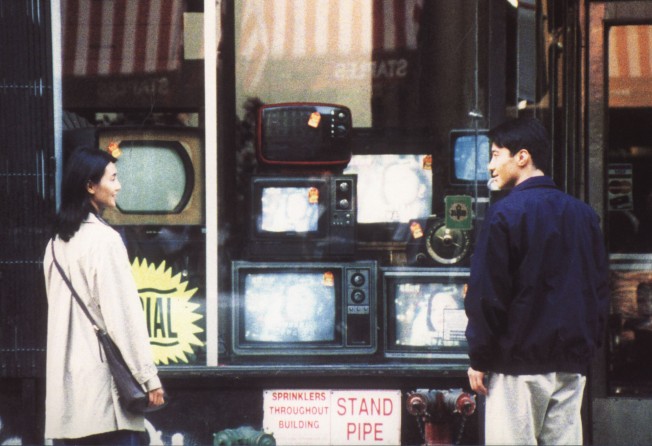
Hong Kong people would feel particularly touched because as we go through the movie, all the dates are real, they’re all tied to their own lives. They can actually relate their experiences on the day she died to the experiences of the actors on the screen.
Her lyrics are very, very important. The theme song, Tian Mi Mi, is actually the Chinese title of Comrades. At the end, when Leon is walking, the lyrics totally mesh with what’s happening on screen.
I tried very hard to translate those lyrics on the screen in subtitles, but it didn’t work. Those sappy love songs, it’s great when you hear them, but when you write the lyrics down, they’re, “Oh, I love you, I dream about you,” stuff like that. It’s just something that Western audiences will have to miss.
Want more articles like this? Follow SCMP Film on Facebook